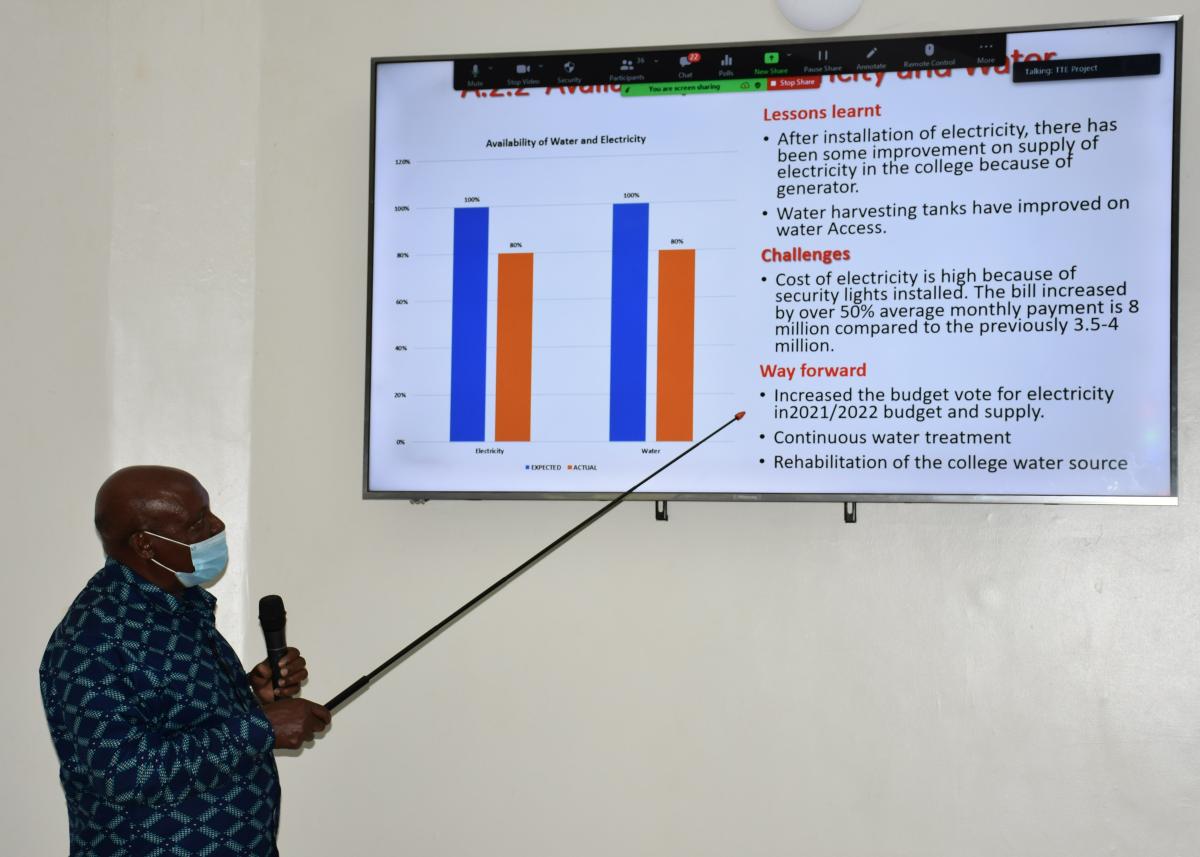Enabel fast tracks a digital response to Results-Based Management in Teacher Colleges – Uganda
Results-Based Management (RBM), a process that involves participatory planning, collaborative implementation, transparent accountability and, monitoring and evaluating planned activities was first introduced in the National Teachers’ Colleges (NTCs) in 2017. This was done with the purpose of enabling college management teams to make well informed decisions and improve on their service delivery.
However, due to the COVID-19 pandemic that led to the closure of learning intuitions, colleges have had a difficult time sustaining the RBM process. To solve this, the Teacher Training Education project (TTE) has introduced a new digital approach to RBM in the NTCs. The focus here is to support management teams in the colleges to develop work plans, budgets and, monitor and report the progress of implemented activities remotely. With support from the TTE project, digital tools such as Google Sheets, Google Drive and Zoom have been introduced to aid the RBM process.
After going through the online process, here are some ways the National Teachers’ Colleges are benefiting from digitalizing RBM.
The new digital approach to RBM has helped to solve the problems associated with the collection and sharing of data in a timely manner. With these digital tools, college committee members can meet remotely through Zoom and, compile and input data in real-time using Google Sheets and Google Drive. This has helped NTCs save time and expenses associated with hosting physical meetings which are costly and involve lengthy deliberations. It has also improved the speed and accuracy of collecting and reporting data. Speaking at the quarterly review meeting on 1st September 2021, Clare Atuhire an Intervention officer at the TTE project said that within 3 days of this year’s quarterly review workshop, almost all colleges were able to analyse and collaboratively input data using the new digital tools.
“During the face-to-face sessions, the data collection exercise was time-consuming as members engaged in endless deliberations while filling the hard copy sheets. Today, it is time-saving because members can fill in data at their convenience.” Enoch Baguma- NTC Kabale
Digitalizing RBM practices in the NTCs has also promoted transparency and accountability by encouraging ownership and participation from all college teams. Initially, the planning, budgeting and reporting of college activities was the work of a handful of college managers such as school bursars and principals. However, with Google Sheets, college teams can access information remotely and contribute ideas where necessary.
In terms of reporting, colleges are able to present data to committees in an analytical, systematic and summarised manner making the process easier, smarter and cost-effective. The use of paper is a thing of the past as committees have embraced online reporting through Google Drive. Additionally, the user-friendly digital tools have presented a chance for committee members to improve on their ICT skills which has, in turn, made them more efficient during reporting processes.
In order to sustain the best practices of Results-Based Management in the NTCs, special reporting templates have been availed to the colleges for sharing work plans to ease the reporting on RBM. Colleges have also been encouraged to budget for RBM activities and make reports to the Ministry of Education and Sports on a quarterly basis.
Over the years, Results-Based Management has proved to be a game-changer in the NTCs and with the new digital twist, colleges are now using online tools to implement RBM remotely.
Latest news from this project
No news

